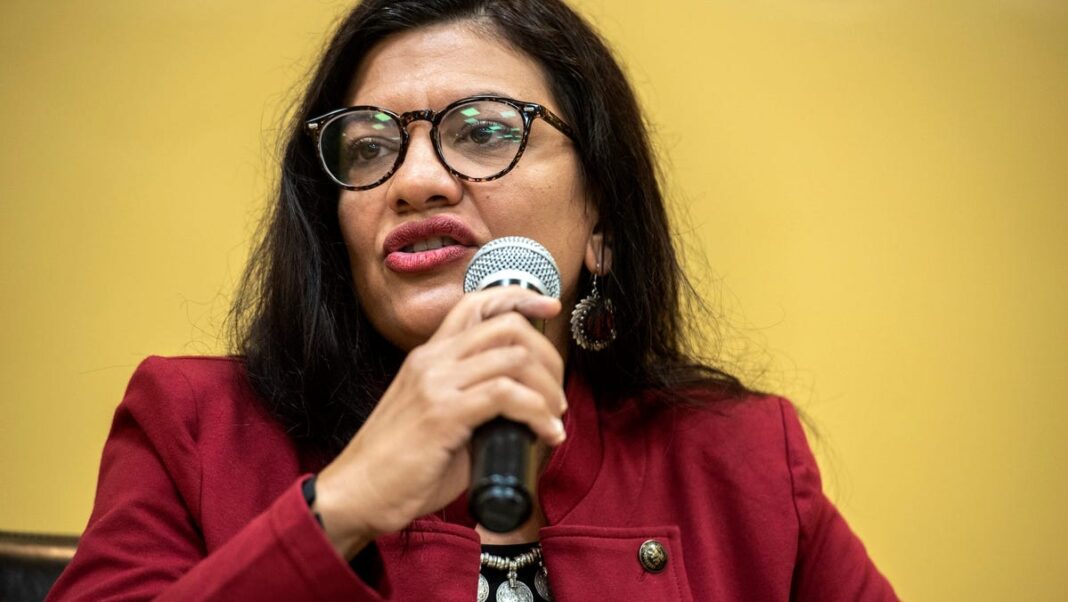Rep. Rashida Tlaib accuses Kroger of using facial recognition for future surge pricing
The Michigan Democrat sent a letter to Kroger on Wednesday, alleging that the grocery chain’s technology could facilitate price gouging, a sentiment echoed by Senators Elizabeth Warren and Bob Casey.
Congresswoman Rashida Tlaib claims that Kroger grocery stores are employing technology that might result in surge pricing and discriminatory pricing practices.
The Michigan Democrat publicly shared a letter on social media on Wednesday, suggesting that the supermarket chain based in Cincinnati, Ohio, could use electronic shelf labels to exploit consumers during emergencies.
“Electronic shelf labels (ESLs) or digital price tags could allow Kroger to implement dynamic pricing for items, causing essential goods to rise in price based on real-time conditions and stock levels, which could create confusion and hardship for my constituents,” the letter stated. “I am worried that these technologies will be misused in the name of profit, raising prices on vital goods in areas with decreasing grocery options.”
Tlaib also raised concerns that by using facial recognition software in stores, Kroger could assemble profiles on customers and adjust prices based on this collected data.
“Facial recognition technology poses a risk to customer privacy and could lead to biased pricing practices,” her letter added.
Kroger responded to the accusations in a statement to YSL News, maintaining that the technology was designed to reduce costs for consumers.
“To clarify, Kroger does not and has never practiced ‘surge pricing,'” the company asserted. “Any trials of electronic shelf tags aim to lower costs for more customers where it’s most impactful. Claims to the contrary are unfounded.”
However, Tlaib’s office has not provided additional comments. The letter requests that Kroger respond by November 1.
Tlaib’s letter resonates with Senator’s concerns
The letter from Tlaib reflects similar worries expressed by Democratic Senators Elizabeth Warren and Bob Casey, who reached out to Kroger in August with concerns that “the broad adoption of digital price tags seems likely to enable major grocery stores to exploit consumers for greater profits.”
“Experts have noted that the widespread implementation of dynamic pricing could lead to grocery items and other goods being ‘priced similarly to airline tickets,'” they indicated.
Kroger launched its digital price tag system, known as Kroger Edge, in 2018.
Bilal Baydoun, director of policy and research for Groundwork Collaborative, testified to the Senate Banking Committee in March, asserting that this technology is intended to “assess how much price inflation shoppers can tolerate.”
Tlaib’s letter follows merger controversies
Kroger is currently involved in a proposed merger with Albertsons, another grocery giant. Arguments regarding a Federal Trade Commission injunction against the suggested $25 billion deal concluded in September.
The FTC lawyers argued that the deal would lessen competition, inflate consumer prices, and eliminate jobs.
“Consumers rely on competition,” FTC attorney Susan Musser remarked in court. “It’s clear that these alternatives (non-supermarket options) do not adequately substitute for traditional grocery stores.”
No ruling has been made by the court at this time.
On Monday, Kroger and Albertsons executives testified in Denver district court that the merger is crucial for them to stay competitive with retail giants like Walmart and Costco, according to the Denver Post. Colorado is one of the states working to block the merger.
“We have been obsessively focused on Walmart and their pricing. For the last two decades, we have aimed to bring our prices in line with Walmart’s,” said Stuart Aitkin, Kroger’s chief merchandise and marketing officer, during his testimony.
The merger was first announced in October 2022, but the FTC filed a lawsuit to prevent it in February. This merger would account for roughly 20% of the U.S. grocery market, according to the U.S. Department of Agriculture, and could impact one out of every six grocery workers if it proceeds, based on data from the Bureau of Labor Statistics.

